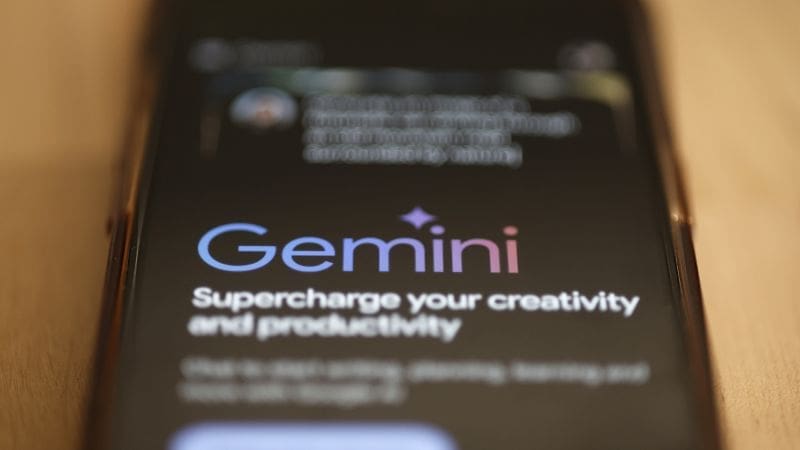In a recent Super Bowl ad, Google showcased its AI technology in an unconventional setting—a Wisconsin cheese market. The ad aimed to demonstrate the capabilities of Google’s Gemini AI by generating product descriptions for cheese. However, it didn’t take long for cheese aficionados to spot inaccuracies, sparking online discussions.
This isn’t the first time Google’s AI has made headlines for inaccuracies. Although AI tools like Google’s have become popular since the release of OpenAI’s ChatGPT, they often give unexpected results. The cheese ad is a key example, highlighting the challenges of using AI to provide reliable information.
The Inaccuracy That Sparked Controversy
In the ad, Google’s AI claimed Gouda cheese accounts for 50-60% of world consumption. This bold statement quickly drew criticism. A social media user humorously pointed out that ‘Cheddar & mozzarella would like a word.’ Such claims raise questions about AI’s ability to provide factual data consistently.
Generative AI, like Google’s, has gained traction globally, yet accuracy remains a significant hurdle. With incidents like these, it becomes clear why some remain skeptical. Revisions are necessary to maintain users’ trust and ensure the information AI provides aligns closely with the truth.
Google’s Response to Feedback
Google was quick to respond to the criticism. Google Cloud executive Jerry Dischler commented that the statistic was not a hallucination. He indicated that multiple sites mention this percentage, though its validity remains uncertain.
In light of feedback, Google updated the ad, removing the controversial statistic. They claimed that upon discussing with the cheese market owner, a more suitable, stat-free description was recommended using AI.
This incident underscores that while AI can innovate, human oversight remains critical. The balance of technology and human input ensures that outputs are not only innovative but also accurate.
AI’s Challenges with Reliable Data
As AI integration deepens, challenges emerge, particularly concerning data reliability. Google’s experience reflects broader issues in AI applications. These systems learn from diverse datasets, not all of which may be accurate, affecting output quality.
Users have previously flagged Google’s AI for errors, such as suggesting glue on pizza for better cheese stick. This unusual advice shows how AI can sometimes go awry, especially when relying solely on web-sourced data.
Addressing these challenges is vital for technology giants like Google. As they push forward in AI development, ensuring data accuracy should remain a priority to avoid misleading users.
The Role of AI in Google’s Strategy
Google aims to embed AI into its operations, striving to stay competitive against US players like OpenAI and Meta and newer Chinese competitors. Their AI strategy focuses on incorporating Gemini AI across multiple platforms, reflecting a commitment to technological advancement.
The cheese ad forms part of their broader campaign, highlighting how small businesses utilize Google Workspace with Gemini. Maintaining ad accuracy is vital in portraying the effectiveness of their tools.
To enhance user trust and showcase AI capabilities, Google must ensure that their tools’ outputs are both innovative and reliable.
Social Media’s Influence on AI Advertising
Social media platforms, like X, are influential in shaping AI technology narratives. User feedback on platforms can quickly turn the tide, as seen with this ad. Constructive criticism can drive improvements, ensuring AI’s evolution aligns with consumer expectations.
Google actively engages with social media feedback to refine its strategies. Adapting to user concerns helps companies enhance their offerings and build stronger connections with their audience.
The interaction between AI advancements and social media is a powerful dynamic, influencing public perception and company strategies significantly.
The Importance of Continuous Improvement
Google’s response to this incident underscores the importance of continuous improvement in AI technology. Recognizing errors and promptly addressing them reaffirms a commitment to advancing their technology while maintaining consumer trust.
AI tools must be frequently revised and updated. As they learn from diverse data sources, ensuring these sources are credible is essential to enhance the tools’ reliability and relevance.
Fostering a culture of continuous improvement ensures that AI technologies benefit users more broadly. Companies like Google prioritize refining their AI tools to keep pace with evolving user needs.
Enhancing AI’s Role in Business Initiatives
AI plays a growing role in business initiatives, offering new possibilities for efficiency and creativity. Companies can leverage AI to streamline processes and innovate, but it’s crucial to address potential pitfalls, as seen in this case.
As businesses adopt AI, they should focus on balance—utilizing technology for growth while ensuring the integrity of their outputs. Successful AI integration can enhance operations and drive business success.
Looking Ahead: The Future of AI in Advertising
The future of AI in advertising holds great promise if challenges like data accuracy and user trust are addressed. AI has the potential to revolutionize how businesses create and distribute content, but it requires careful management. Companies must prioritize transparency and accountability in their AI applications.
As seen with Google, adapting AI tools to meet user expectations while maintaining factual accuracy will be crucial. The evolution of AI in advertising is an ongoing journey, requiring constant vigilance and adaptation.
Conclusion: Navigating AI’s Complexities
Navigating AI’s complexities is crucial for companies aiming for successful implementation. Google’s experience with the cheese ad illustrates the importance of precision and responsiveness in AI applications. Businesses must remain agile and attentive to optimize AI’s benefits.
The journey to refine AI tools is ongoing. By focusing on accuracy and responding to user feedback, companies can harness AI’s potential and redefine industry standards.
Google’s cheese ad highlights AI’s potentials and pitfalls. Balancing innovation with accuracy is key, as companies strive to refine their AI technologies. Continuous improvement and responsiveness to feedback ensure these tools meet the evolving needs and expectations of consumers.








